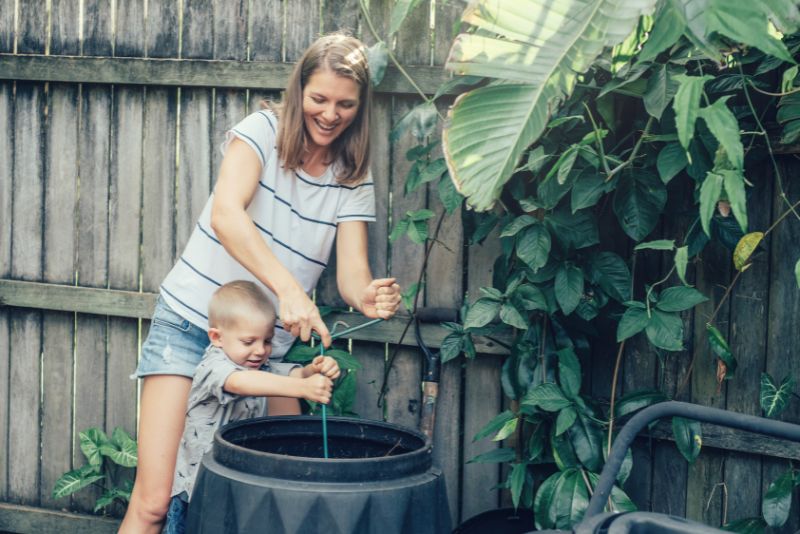Your Quick Guide to Composting

Welcome to Wellers Hill Hardware’s blog, where gardening meets expertise! As your trusted local hardware partner, we’re not just about tools and materials; we’re about fostering a thriving gardening community right here in our neighbourhood. Today, we’re delving into the world of composting – a cornerstone of sustainable gardening. Whether you’re a seasoned green thumb or just starting to explore the wonders of your garden, this guide is packed with essential tips and insights to help you create nutrient-rich compost right in your backyard. Let’s dig into the art and science of composting, a key to unlocking your garden’s full potential!
1. What’s the Simplest Way to Make Compost?
Composting can be as simple or as complicated as you make it. The essence of composting is breaking down organic matter, whether plant debris or animal remains. The simplest form involves piling up materials like grass clippings, wood chips, and plants, then letting nature do its work. Over time, this pile transforms into rich, dark humus.
2. How Long Does Composting Take?
The time it takes to make compost varies based on the ingredients and your effort. Materials like grass clippings and shredded leaves break down faster due to their high nitrogen content. On the other hand, carbon-rich materials like wood chips or straw take longer. Depending on your involvement and the balance of ingredients, it could take anywhere from a few weeks to a couple of years.
3. How Hot Should My Compost Pile Be?
If you’re dealing with weeds, grass seeds, or diseased foliage, your compost pile should reach at least 130 degrees Fahrenheit. This temperature is essential for killing off unwanted seeds and pathogens. Remember, once the pile cools down, you should check for food, oxygen, and moisture levels to maintain optimal composting conditions.
4. Burying Organic Material in the Garden
Burying organic materials like fish frames and kitchen scraps enriches the soil’s nutritional value. This process accelerates what nature does naturally, allowing microbes to break down these materials and return essential building blocks back into the soil.
5. Benefits of Composting
The advantages of composting are numerous. It promotes self-sufficiency, reduces CO2 emissions compared to industrial composting processes and saves money. Additionally, it lets you control the quality of the compost, ensuring it’s free from unwanted chemicals or materials.
And there you have it – a comprehensive guide to mastering the art of composting, brought to you by Wellers Hill Hardware. We hope these insights and tips inspire you to start or enhance your composting journey. Remember, every handful of compost you create not only enriches your garden but also contributes to a healthier, more sustainable environment. At Wellers Hill Hardware, we’re more than just your go-to for gardening supplies; we’re your partners in nurturing a greener world. Stay tuned for more gardening tips and tricks, and feel free to drop by our store for all your gardening needs. Visit Wellers Hill Hardware & Landscape Supplies to purchase a composting bin or tumbler or purchase online and have it ready for click and collect or to jump start your gardening process order our garden soil today.

